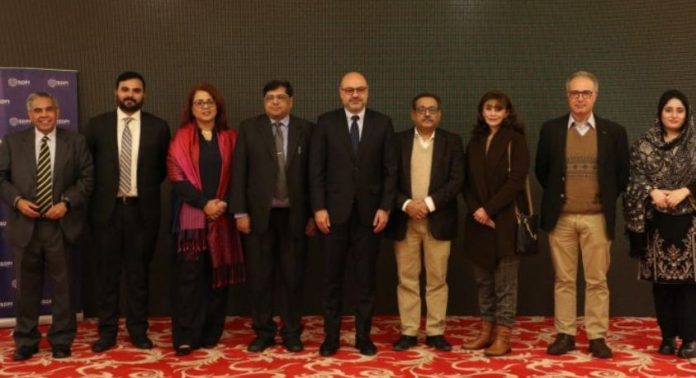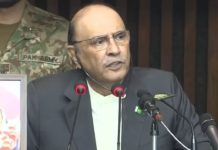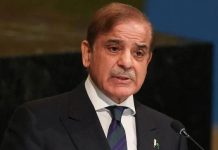ISLAMABAD, Dec 18 (DNA):The Sustainable Development Policy Institute (SDPI) held a stakeholder national workshop on Wednesday focused on developing an inclusive approach to Pakistan’s climate commitments under the Nationally Determined Contributions (NDCs) framework.
The event, titled “Developing Inclusive Climate Commitments: NDCs 3.0 for Pakistan,” convened policymakers, experts, media and key stakeholders to discuss Pakistan’s climate goals and the way forward to meet these commitments in light of growing environmental challenges, said a press release.
The workshop featured a series of insightful speeches from leading experts, beginning with Dr Shafqat Munir, Deputy Executive Director of SDPI, who emphasized the importance of strengthening Pakistan’s climate policies to create a more resilient and sustainable future.
Muhammad Arif Goheer, Executive Director of the Global Climate Change Impact Studies Center (GCISC), underscored the nation’s responsibility to safeguard its future and society. “We must develop resilience plans and innovative solutions to meet our commitments. Our country is vulnerable to climate impacts, and it is essential that the NDCs reflect practical, effective actions,” said Mr Goheer.
He also emphasized that Pakistan’s NDCs should not merely be a piece of paper but a set of binding commitments that cannot be easily denied. “Adaptation, mitigation, and alignment with global negotiations are necessary,” he noted, stressing the urgency of addressing the impacts of floods, heatwaves, and rising sea levels on vulnerable communities.
Samuel Rizk, Resident Representative UNDP, highlighted the critical importance of Pakistan’s NDCs in the context of international climate commitments. He noted that the workshop would serve as a platform to develop an inclusive and realistic NDC document that aligns with Pakistan’s development needs and climate ambitions.
Aisha Moriani, Secretary of the Ministry of Climate Change (MoCC), emphasized the importance of policy alignment to ensure that green transformation is incentivized. “The government must introduce green policies with incentives, like electric vehicles (EVs), which will take time but will become more affordable as technology advances,” she said. Moriani further stressed the importance of technology becoming more accessible, affordable, and locally applicable, with a focus on solar energy and technology transfer.
Sobiah Becker of GIZ Pak-German Climate Change Partnership echoed the need for a whole-of-government and whole-of-nation approach. “Without contributions from both the public and private sectors, the ambitious goals of the NDCs cannot be achieved. The private sector will provide innovation, and the public sector will create policies that support these advancements,” she said. Becker also highlighted the importance of ensuring coherence between national and subnational climate policies.
Muhammad Mustafa, Chairman of the Pakistan Renewable Energy Coalition, drew attention to the importance of tapping into global climate finance. “Our NDCs must be robust enough to ensure that financing is linked directly to the commitments laid out in the document,” Mustafa emphasized. “Pakistan needs more reliable baseline data to track and trace progress effectively.”
The roundtable discussion on Pakistan’s NDCs included Arif Goheer’s presentation on Pakistan’s second NDC, where the country committed to a 50% emissions reduction, with 15% through indigenous efforts and 35% conditional upon global support. Notable initiatives such as the Ten Billion Tree Tsunami, which aims to sequester 150 million tonnes of carbon emissions, and significant renewable energy and energy efficiency actions were discussed as part of the second NDC.
During the second part of the workshop, Chairman Public Accounts Committee, Punjab Assembly, Ahmed Iqbal Chaudhry highlighted the implementation infrastructure anomalies at the federal and provincial levels and advocated for a grassroots level strong local government system that would be responsible to implement climate commitments like NDCs at the subnational level.
He called for better understanding of land use to ensure enhanced management of resources, quality urban planning and organized state architecture that hinges on reforms in the civil service focusing effective service delivery.
In his closing remarks, Dr Abid Qaiyum Suleri, Executive Director SDPI said the workshop enabled a platform for the stakeholders to renew their commitment to continue working together to refine and implement the NDCs, ensuring that Pakistan’s climate commitments were not only met but were effectively supported by policies, technology, and finance.

















